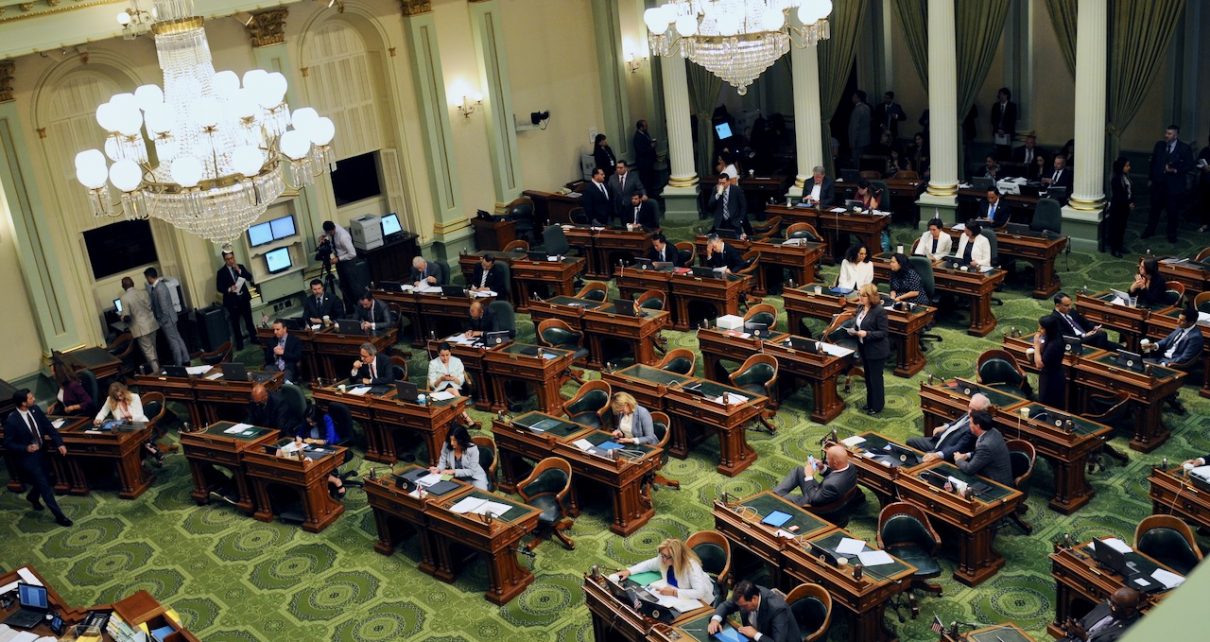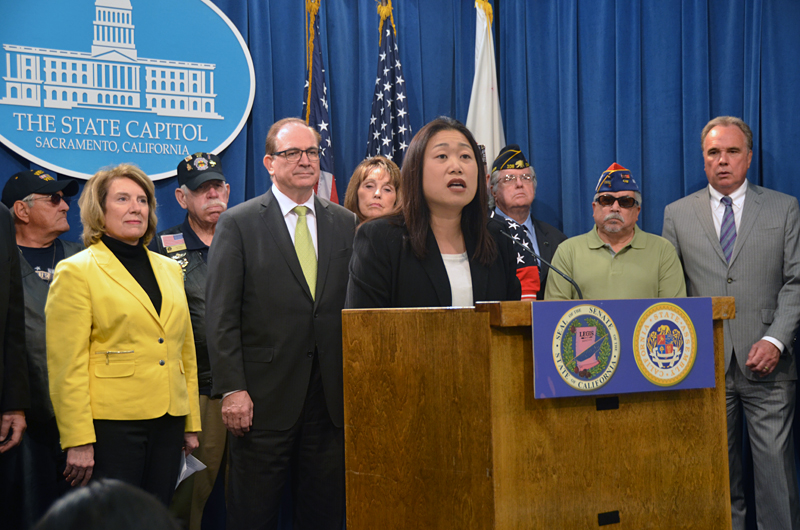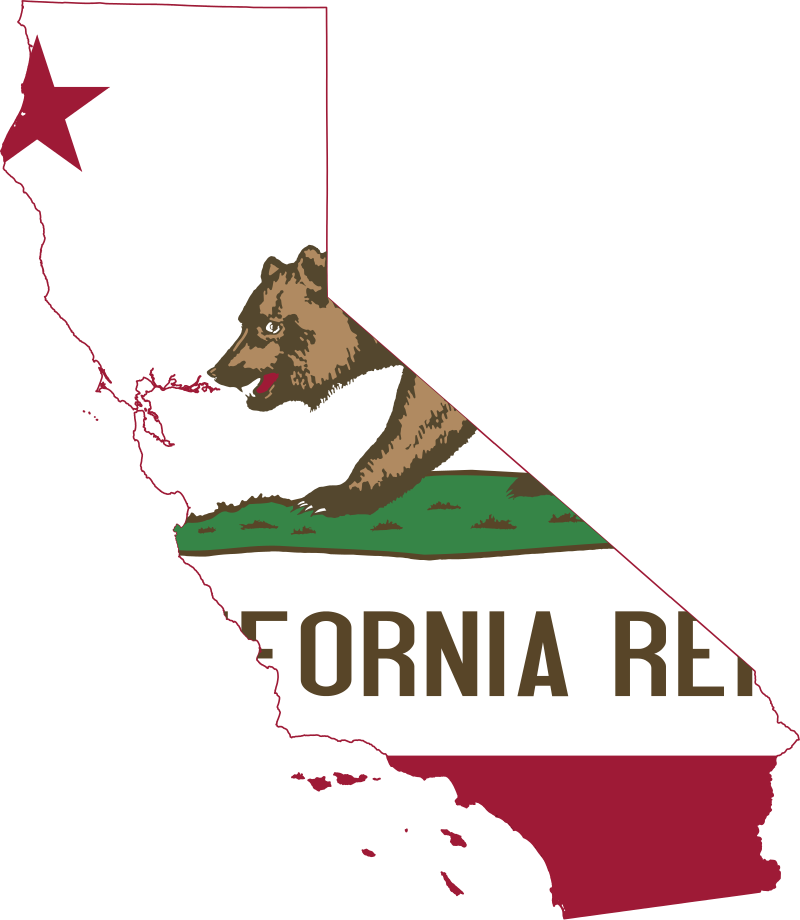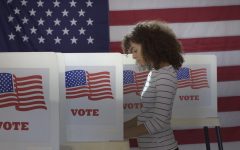
California State Assembly Chamber. (Photo: Kevin Sanders for California Globe)
Truth in Election Campaign Endorsements
The voting public is entitled to protection by law from deception in political campaigns
By Chris Micheli, February 2, 2022 3:11 pm
California’s Elections Code provides laws related to the endorsement of candidates in election campaigns in Division 20, Chapter 1. Section 20000 provides that Chapter 1 is known as the Truth in Endorsements Law. Section 20001 provides four legislative findings:
- The major political parties have become an integral part of the American governmental system requiring regulation as to their structure, governing bodies, and functions by state government in the public interest.
- The Legislature has found it necessary and appropriate in the regulation of political parties to create and provide for the convening of state conventions, state central committees, and county central committees for parties qualified by law to participate in the direct primary election.
- Over the several years preceding the adoption of this section organizations of electors using as a part of their names the name of a political party qualified to participate in the direct primary election have endorsed candidates for nomination of that party for partisan office in the direct primary election and have publicized and promulgated the endorsements in a manner that has resulted in considerable public doubt and confusion as to whether the endorsements are those of a private group of citizens or of an official governing body of a political party.
- The voting public is entitled to protection by law from deception in political campaigns in the same manner and for the same reasons that it is entitled to protection from deception by advertisers of commercial products.
Section 20006 allows a superior court, in any case brought before it by any registered voter, to issue a temporary or permanent restraining order or injunction against the publication, printing, circulation, posting, broadcasting, or telecasting of any matter in violation of this chapter, and all cases of this nature must be in a preferred position for purposes of trial and appeal, so as to assure the speedy disposition of a case.
Section 20007 specifies that no candidate or committee in his or her behalf is allowed to represent in connection with an election campaign, either orally or in campaign material, that the candidate has the support of a committee or organization that includes as part of its name the name or any variation upon the name of a qualified political party with which the candidate is not affiliated, together with the words “county committee,” “central committee,” “county,” or any other term that might tend to mislead the voters into believing that the candidate has the support of that party’s county central committee or state central committee, when that is not the case.
Section 20008 states that any paid political advertisement that refers to an election or to any candidate for state or local elective office and that is contained in or distributed with a newspaper, is required to bear on each surface or page, in type or lettering at least half as large as the type or lettering of the advertisement or in 10-point roman type, whichever is larger, the words “Paid Political Advertisement.” The words must be set apart from any other printed matter.
Section 20009 requires every simulated ballot or simulated county voter information guide to bear on each surface or page, in type or lettering at least half as large as the type or lettering of the statement or words or in 10-point roman type, whichever is larger, in a printed or drawn box and set apart from any other printed matter, the following statement:
“NOTICE TO VOTERS
“(Required by Law)
“This is not an official ballot or an official county voter information guide prepared by the county elections official or the Secretary of State.
“This is an unofficial, marked ballot prepared by ____ (insert name and address of the person or organization responsible for preparation thereof).”
Note that this section does not require such a notice in any editorial or other statement appearing in a regularly published newspaper or magazine other than a paid political advertisement.
Section 20010 provides that a person, committee, or other entity is prohibited from, within 60 days of an election at which a candidate for elective office will appear on the ballot, distributing, with actual malice, materially deceptive audio or visual media of the candidate with the intent to injure the candidate’s reputation or to deceive a voter into voting for or against the candidate.
For visual media, the text of the disclosure is required to appear in a size that is easily readable by the average viewer and no smaller than the largest font size of other text appearing in the visual media. If the media consists of audio only, the disclosure must be read in a clearly spoken manner and in a pitch that can be easily heard by the average listener, at the beginning of the audio, at the end of the audio, and, if the audio is greater than two minutes in length, interspersed within the audio at intervals of not greater than two minutes each.
In addition, a candidate for elective office whose voice or likeness appears in a materially deceptive audio or visual media distributed in violation of this section may seek injunctive or other equitable relief prohibiting the distribution of audio or visual media in violation of this section.
In any civil action alleging a violation of this section, the plaintiff has the burden of establishing the violation through clear and convincing evidence. This section does not apply to a radio or television broadcasting station; an internet website, or a regularly published newspaper, magazine, or other periodical of general circulation, including an internet or electronic publication, that routinely carries news and commentary of general interest, and that publishes materially deceptive audio or visual media prohibited by this section, if the publication clearly states that the materially deceptive audio or visual media does not accurately represent the speech or conduct of the candidate. And, this section does not apply to materially deceptive audio or visual media that constitutes satire or parody.
This section remains in effect only until January 1, 2023, and as of that date is repealed.
- Probate Code Could Be a Basis for Statutory Interpretation Principles - February 22, 2026
- Conservation Banks - February 22, 2026
- Mergers of Unincorporated Associations - February 21, 2026




